From the end of September 2019 until the beginning of January 2020, 65 Utrecht households tried to learn as much as possible about the separation and collection of plastic waste. They learnt a lot how to treat the plastic waste and Utrecht learnt much more about their needs. From the beginning, it was quite clear that the inhabitants need much more and clear information how to treat the waste inside a house. They find it not easy to understand how to recycle. Especially chips bags and multi-layer black pet trays are confusing. “Is it packaging waste or residual waste? Why can’t I put plastic toys in a mini container for plastic waste?” They understand the needs of plastic and see the advantages of the material, but expect that all plastics are recycled at the end.
Furthermore, inhabitants are confused about the difference in legislation and execution between regions and countries. Before, during and at the end, Utrecht did some tests and calculations. Plastic and residual waste were analysed. The quality of the plastic packaging waste did not improve in the pilot and reference area. Contamination of up to 36% in the pilot area was found. Being that a pity, as the residual waste contains more plastic packaging than the containers with plastic packaging waste. That means the circle is not closed. There is more work to do.
And what did Utrecht learn? That recycling is not only about information. It is also about reliable high frequency collection, for example. Or about having enough underground containers in the neighbourhood. Utrech also learnt that there are simple rules for how to determinate the plastic packaging waste. Is it from the kitchen or bathroom?; Is it empty?; Is it made out of plastic? Three times yes means that it can be dumped in the container for plastic packaging waste. But the most important conclusion was that plastic packaging should be made for recycling. Therefore, what happens at home should be in line with collection and treatment / recycling of waste. It is very interesting to think about these issues. The story will continue in the coming years. More information can be found here.
